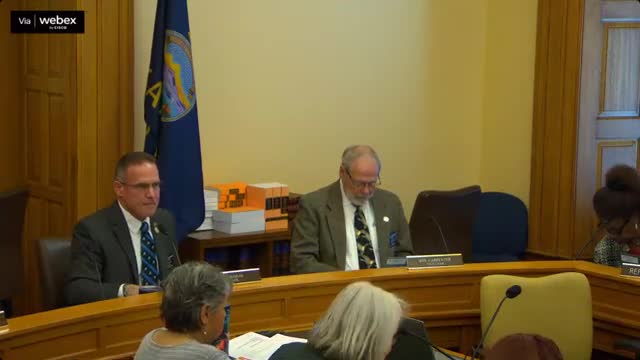Committee reviews CMS-driven conflict-of-interest concerns in targeted case management

Summary
Dayton Lamonian, senior fiscal analyst with the Kansas Legislative Research Department, told the Committee on Social Services Budget that the Special Committee on Targeted Case Management recommended a set of steps after CMS raised conflict-of-interest concerns about targeted case management providers who also supply waiver services.
Dayton Lamonian, senior fiscal analyst with the Kansas Legislative Research Department, told the Committee on Social Services Budget that the Special Committee on Targeted Case Management recommended a set of steps after CMS raised conflict-of-interest concerns about targeted case management (TCM) providers who also supply waiver services.
The special committee recommended KDADS distribute a survey to waiver enrollees and other stakeholders, develop a Kansas-specific response to the federal requirement to prevent conflicts of interest in TCM, allow both agency-based and independent case managers indefinitely while using available flexibilities (including clear firewalls for agency-based providers), build a robust monitoring system, allow exemptions in rural areas, and ask the House and Senate health committees to review TCM provider capacity and reimbursement rates.
The committee also voted to request — and the transcript shows a letter was sent — documentation and guidance from the Centers for Medicare and Medicaid Services (CMS) on the need to separate case management and service provision.
Why it matters: KDADS officials said the federal requirement stems from the CMS "settings" final rule and that a large share of people using services may be affected if agency-based case managers must be separated from provider agencies. KDADS reported the program serves about 9,400 people; roughly 1,200 are already served in a conflict-free arrangement, leaving an estimated 7,000–8,000 people potentially affected by the federal guidance. Committee members expressed concern about continuity of services and whether existing clients could be grandfathered.
KDADS LTSS Commissioner Michelle Hayden described the federal basis for the concern: "This conflict of interest rose out of the federal regulation, from the settings final rule to make sure that we have, integrated, settings and, conflict free, services for people with disabilities." Hayden explained that in some counties the community developmental disability organization (CDDO) both provides services and case management, which CMS views as a potential conflict because the CDDO is expected to give conflict-free information about options.
Representative Will Carpenter (District 75) framed the scale of the potential change: "We serve 9,400 people ... roughly 1,200 of those folks are served by, outside the provider services ... That leaves another 7 or 8,000 people that are in this federal requirement of perceived conflict." Carpenter and others warned that federal funding could be at risk if the state did not respond appropriately.
Representative Barbara Ballard (District 44) raised continuity concerns for long‑time program participants: she said the change could upend people who have used the same provider relationships for 15–16 years and emphasized the need to understand practical effects on daily services and employment supports.
Representative Susan Ruiz (District 23) asked specifically whether currently served individuals could be grandfathered and kept with their present providers while only new enrollees would face the separation requirement; KDADS' initial response, delivered by Michelle Hayden, was that the initial indication was "no" but staff agreed to research the question further.
Dayton Lamonian told the committee that KLRD would circulate the committee materials and that the committee had received a responsive letter from CMS addressing some of the questions.
Ending: Committee members asked staff and agency representatives to research grandfathering options, capacity and reimbursement implications, and to circulate the CMS response to members. Dayton Lamonian confirmed he would send the letter to committee members and staff agreed to follow up with the requested research and clarification.

